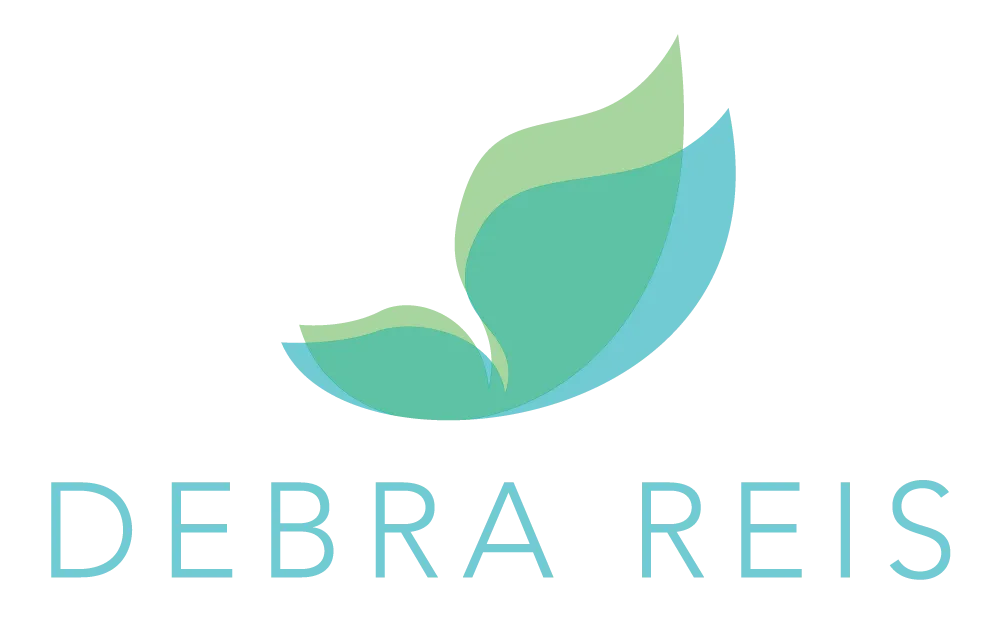BLOG
Supportive Therapies For Better Outcomes — Enrich Your Life Through Relaxation Techniques, Aromatherapy, and Gentle Movement.

Cooling the Flame: How to Reduce Inflammation Naturally with Aromatherapy and Integrative Therapies
Inflammation—a word we hear frequently, often tied to chronic illness, fatigue, autoimmune conditions, and even burnout. While inflammation is a natural healing response, when it becomes chronic, it turns from protector to saboteur, quietly fueling disease and dis-ease in the body and mind.
As a holistic nurse and integrative practitioner, I’ve witnessed how this internal “fire” contributes not only to physical ailments but also to emotional imbalance and spiritual disconnect. The good news? Natural, evidence-informed ways exist to cool the flame, restore balance, and support lasting wellness.
Let’s explore how.
🔥 Why Inflammation Matters

Chronic inflammation is at the root of many modern health challenges, including:
Heart disease
Autoimmune disorders
Diabetes
Joint pain
Digestive issues
Anxiety and depression
Cognitive decline
In a world of high stress, processed foods, and constant stimulation, the body can’t keep up. The immune system becomes overstimulated, and inflammation quietly takes hold—affecting every system in the body.
🌿 3 Integrative Strategies to Reduce Inflammation
1. Gentle Movement that Calms, Not Depletes
Exercise doesn’t need to be intense to be effective. Gentle, consistent movement helps decrease inflammation, regulate cortisol, and improve mood and energy.
Consider:
Nia, or mindful movement
Walking outdoors
Stretching or yoga
Dance or tai chi
💡 Why it works: Movement increases circulation, encourages lymphatic flow, and helps the body release tension—without overtaxing the nervous system.
2. Anti-Inflammatory Nutrition
What we eat directly influences inflammation. Foods high in sugar, processed ingredients, or gluten (for sensitive individuals) can exacerbate the inflammatory response.
Focus on:
Leafy greens and cruciferous veggies
Omega-3-rich foods (salmon, flax, walnuts)
Antioxidant-rich fruits like berries
Herbs and spices: turmeric, ginger, garlic
Hydration with clean, filtered water
Avoid:
Refined sugar and white flour
Highly processed snacks and fast food
Wheat or gluten, if you notice sensitivity
💡 Pro Tip: Try a simple “reset” by eliminating inflammatory triggers for two weeks and observe your energy, sleep, and mood changes.
3. Aromatherapy: Plant-Based Support for Body and Mind
Essential oils offer a gentle yet powerful way to reduce inflammation physically and emotionally. Many oils have anti-inflammatory, analgesic, and calming properties that support the body’s healing response.
Some of my favorites include:
Lavender – Calms the nervous system, reduces muscle tension, and supports restful sleep.
Frankincense – Grounding, immune-supportive, and spiritually centering.
Roman Chamomile – Soothes emotional distress and inflammation.
Peppermint – Cooling and clearing, especially for headaches or overexertion.

Use aromatherapy by:
Diffusing in your home or healing space
Creating a roller blend with carrier oil for topical use
Adding to Epsom salt for a soothing bath
Inhaling a drop from your palms during meditation or breathwork
💡 Note: Always choose high-quality essential oils and follow proper dilution guidelines.
🌀 Ready to Dive Deeper?
If you’re curious about how to use aromatherapy more effectively to manage inflammation—whether for yourself, your clients, or your practice—join me for an upcoming presentation:
Cooling the Flame: Inflammation & Aromatherapy
🗓️ Date: Tuesday, April 1st
🕐 Time: 1:00 PM EST
🎥 Replay available
💻 Register here
In this live Deep Dive session, I’ll cover:
How inflammation affects body, mind, and spirit
Essential oils that support anti-inflammatory healing
Blending tips for clients and personal use
Tools for calming the body’s internal fire
🌸 Final Thoughts
Reducing inflammation doesn’t have to be overwhelming. Through simple, intentional practices like movement, mindful eating, and the gentle power of aromatherapy, we can return to balance and support true healing from the inside out.
This blog is provided for educational and informational purposes only and is not medical, mental health, or healthcare advice. Although Debra Reis is a Clinical Nurse Specialist licensed in the state of Michigan, she is not acting in that capacity here. Debra Reis is acting as a holistic educator and consultant, not as a licensed medical health professional or in her professional capacity as a Clinical Nurse Specialist. The information presented here is not intended to diagnose, treat, heal, cure or prevent any illness, medical condition, or mental or emotional condition. Working with us is not a guarantee of any results. Debra Reis, Wellness Services, LLC owns all copyrights to the materials presented here unless otherwise noted.

Cooling the Flame: How to Reduce Inflammation Naturally with Aromatherapy and Integrative Therapies
Inflammation—a word we hear frequently, often tied to chronic illness, fatigue, autoimmune conditions, and even burnout. While inflammation is a natural healing response, when it becomes chronic, it turns from protector to saboteur, quietly fueling disease and dis-ease in the body and mind.
As a holistic nurse and integrative practitioner, I’ve witnessed how this internal “fire” contributes not only to physical ailments but also to emotional imbalance and spiritual disconnect. The good news? Natural, evidence-informed ways exist to cool the flame, restore balance, and support lasting wellness.
Let’s explore how.
🔥 Why Inflammation Matters

Chronic inflammation is at the root of many modern health challenges, including:
Heart disease
Autoimmune disorders
Diabetes
Joint pain
Digestive issues
Anxiety and depression
Cognitive decline
In a world of high stress, processed foods, and constant stimulation, the body can’t keep up. The immune system becomes overstimulated, and inflammation quietly takes hold—affecting every system in the body.
🌿 3 Integrative Strategies to Reduce Inflammation
1. Gentle Movement that Calms, Not Depletes
Exercise doesn’t need to be intense to be effective. Gentle, consistent movement helps decrease inflammation, regulate cortisol, and improve mood and energy.
Consider:
Nia, or mindful movement
Walking outdoors
Stretching or yoga
Dance or tai chi
💡 Why it works: Movement increases circulation, encourages lymphatic flow, and helps the body release tension—without overtaxing the nervous system.
2. Anti-Inflammatory Nutrition
What we eat directly influences inflammation. Foods high in sugar, processed ingredients, or gluten (for sensitive individuals) can exacerbate the inflammatory response.
Focus on:
Leafy greens and cruciferous veggies
Omega-3-rich foods (salmon, flax, walnuts)
Antioxidant-rich fruits like berries
Herbs and spices: turmeric, ginger, garlic
Hydration with clean, filtered water
Avoid:
Refined sugar and white flour
Highly processed snacks and fast food
Wheat or gluten, if you notice sensitivity
💡 Pro Tip: Try a simple “reset” by eliminating inflammatory triggers for two weeks and observe your energy, sleep, and mood changes.
3. Aromatherapy: Plant-Based Support for Body and Mind
Essential oils offer a gentle yet powerful way to reduce inflammation physically and emotionally. Many oils have anti-inflammatory, analgesic, and calming properties that support the body’s healing response.
Some of my favorites include:
Lavender – Calms the nervous system, reduces muscle tension, and supports restful sleep.
Frankincense – Grounding, immune-supportive, and spiritually centering.
Roman Chamomile – Soothes emotional distress and inflammation.
Peppermint – Cooling and clearing, especially for headaches or overexertion.

Use aromatherapy by:
Diffusing in your home or healing space
Creating a roller blend with carrier oil for topical use
Adding to Epsom salt for a soothing bath
Inhaling a drop from your palms during meditation or breathwork
💡 Note: Always choose high-quality essential oils and follow proper dilution guidelines.
🌀 Ready to Dive Deeper?
If you’re curious about how to use aromatherapy more effectively to manage inflammation—whether for yourself, your clients, or your practice—join me for an upcoming presentation:
Cooling the Flame: Inflammation & Aromatherapy
🗓️ Date: Tuesday, April 1st
🕐 Time: 1:00 PM EST
🎥 Replay available
💻 Register here
In this live Deep Dive session, I’ll cover:
How inflammation affects body, mind, and spirit
Essential oils that support anti-inflammatory healing
Blending tips for clients and personal use
Tools for calming the body’s internal fire
🌸 Final Thoughts
Reducing inflammation doesn’t have to be overwhelming. Through simple, intentional practices like movement, mindful eating, and the gentle power of aromatherapy, we can return to balance and support true healing from the inside out.
This blog is provided for educational and informational purposes only and is not medical, mental health, or healthcare advice. Although Debra Reis is a Clinical Nurse Specialist licensed in the state of Michigan, she is not acting in that capacity here. Debra Reis is acting as a holistic educator and consultant, not as a licensed medical health professional or in her professional capacity as a Clinical Nurse Specialist. The information presented here is not intended to diagnose, treat, heal, cure or prevent any illness, medical condition, or mental or emotional condition. Working with us is not a guarantee of any results. Debra Reis, Wellness Services, LLC owns all copyrights to the materials presented here unless otherwise noted.



